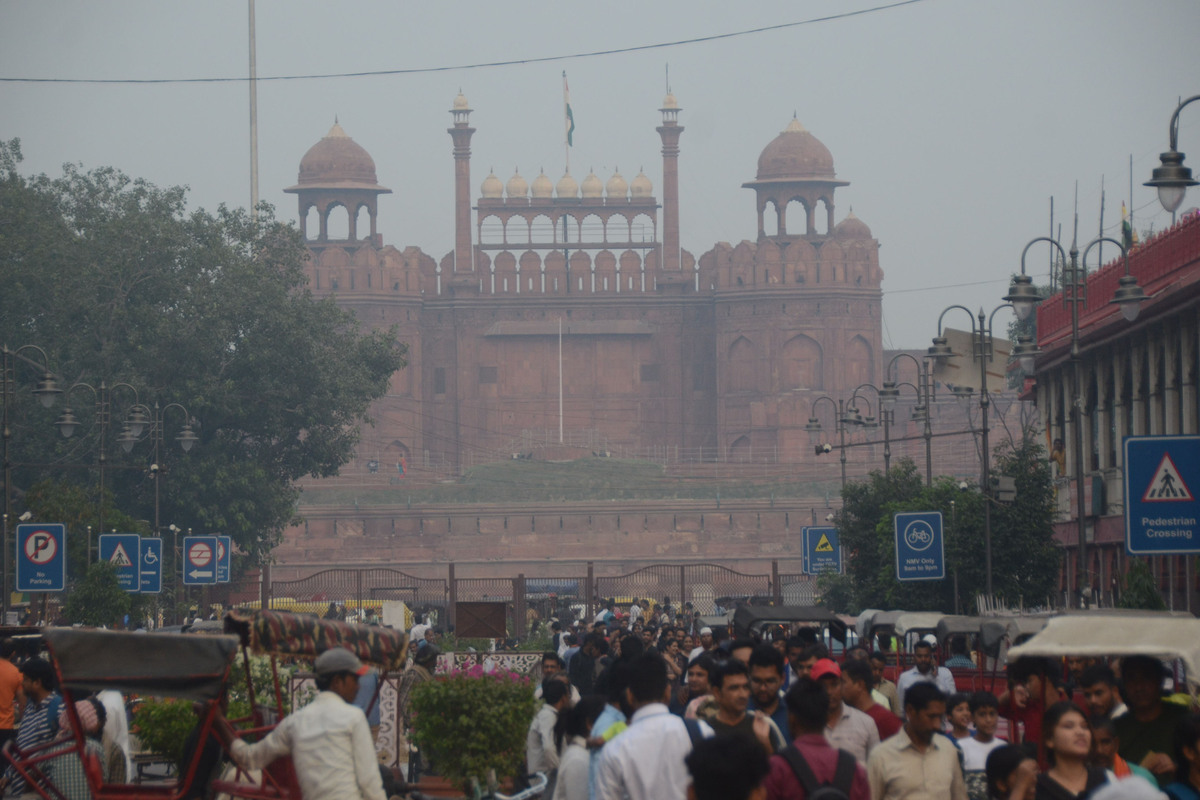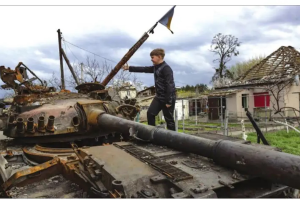The air quality in Delhi remained ‘very poor’ on Monday as well. The System of Air Quality and Weather Forecasting and Research (SAFAR) pegged the air quality index (AQI) at 342.
An AQI between zero and 50 is considered “good”; 51 and 100 “satisfactory”; 101 and 200 “moderate”; 201 and 300 “poor”; 301 and 400 “very poor”; and 401 and 500 “severe”.
The AQI for the day has been marginally lower than the AQI level of 350 on Sunday. In the area near Delhi University, the AQI has recorded 372 under the ‘very poor’ category. It is in the ‘very poor’ category of 362 in the Lodhi Road area.
The Pusa area was also under the ‘very poor’ category with an AQI level of 340. The AQI at Mathura Road, IGI Airport Terminal 3, and IIT Delhi also was also of ‘very poor’ quality measured at 358, 336, and 322 respectively.
The air quality has been deteriorating in the national capital much before Diwali but deteriorated further as the people burnt firecrackers here and also because of the stubble burning in Punjab, Uttar Pradesh, Haryana and Rajasthan.
Increasing incidents of stubble burning in Punjab this year have become a matter of serious concern with the Union Environment Ministry pointing out that the AQI is likely to sharply deteriorate as only about 45-50 per cent of sown area in the state had been harvested till October 24.
Sources in the Environment Ministry have said that the contribution of stubble burning to the adverse air quality in Delhi and the National Capital Region has been increasing sharply and is about 18-20 per cent currently with the trend only likely to increase further.
As per the Standard Protocol developed by ISRO for Commission for Air Quality Management (CAQM), for the period September 15, 2022, to October 26, 2022, total paddy residue burning incidents reported in Punjab were 7,036 as compared to 6,463 for the same period during the last year.
CAQM further stated that about 70 per cent of farm fires during the current paddy harvesting season were reported only from six districts of Punjab – Amritsar, Firozpur, Gurdaspur, Kapurthala, Patiala, and Tarn Taran.
These districts account for 4,899 cases against a total of 7,036 incidents in Punjab. These traditional hotspot districts also accounted for about 65 per cent of the total burning incidents during the last year for the same period. Out of a total of 7,036 cases of stubble burning, 4,315 incidents were reported during the last six days alone.
As per the Standard ISRO Protocol, for the period of September 15 – October 28 this year, a total of 10,214 paddy residue burning events have been reported in Punjab compared to 7,648 for the same period during the last year, which is a significant increase of about 33.5 per cent.
Out of the total 10,214 reported cases, 7,100 stubble-burning incidents were reported in the last 7 days alone which is about 69 per cent, added the official.
In Haryana, the total number of farm fire events reported for the period September 15, 2022, to October 26, 2022, is 1,495 as compared to 2,010 for the same period last year. There is about a 26 per cent reduction in paddy residue burning events in Haryana so far during the current year.
Meanwhile, the Commission for Air Quality Management in NCR and adjoining areas has intensified its efforts to ensure enforcement and compliance with its directions in view of deteriorating air quality in Delhi.
The Commission has issued closure directions to 45 coal-based industrial units in Rajasthan. Further, 32 coal-based units (9 in Haryana and 23 in UP) have been closed down permanently. 48 units (8 in Haryana and 40 in UP) have temporarily suspended their operations till these units are converted to approved fuels.
The Graded Response Action Plan (GRAP) sub-committee decided to implement Stage III of GRAP in the entire NCR in a move to prevent further deterioration of air quality.
“Under this, all construction work will be banned except for special projects like Central Vista and other projects of national need,” read the official press release from Commission for Air Quality Management in NCR and Adjoining Areas.
While comprehensively reviewing the overall air quality parameters during the meeting, the Commission noted that due to unfavourable meteorological conditions with slower wind speed and sudden spike in farm fire incidents, it is considered necessary to implement Stage III of GRAP with immediate effect in the entire NCR.











